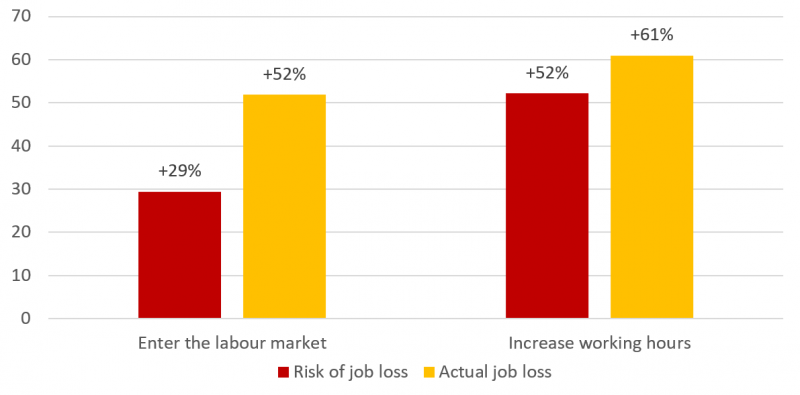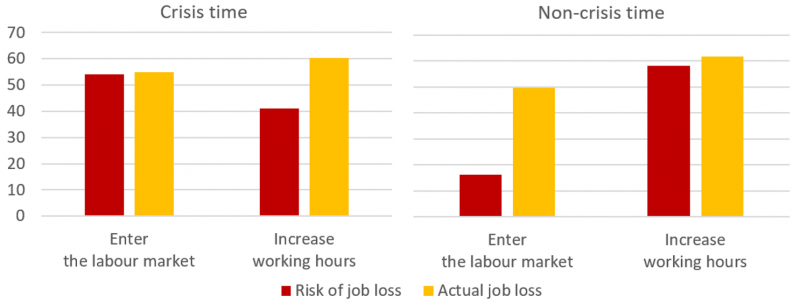

This article is based on a working paper published by the National Bank of Belgium for its international biennial research conference.
Figure 1: Significant labour supply adjustments occur already when the partner is at risk of losing his/her job (in percentages, compared to probabilities for couples without risk of job loss or actual job loss)

Figure 2: During crises, the effect of fearing a job loss is almost as big as that of an actual job loss (in percentages, compared to probabilities for couples without risk of job loss or actual job loss)

Finally, the level of education also plays a role in labour market adjustments. Low-educated individuals step up their labour supply considerably as soon as they perceive a risk of job loss, while high-educated people wait for their partner’s job loss to materialise. The faster reaction by the low-educated could be because a job loss presents a much bigger financial risk (the income loss is proportionally higher and their level of savings is lower), and because it is more difficult for them to find a new job. This underscores the necessity for sufficient social protection for all workers, including low-income workers in non-standard forms of employment, and adequate active labour market policies to help people to rapidly find jobs when needed.